Acupuncture, an ancient Chinese medical practice, has garnered attention in the modern wellness landscape for its distinctive approach to treating various ailments, particularly pain. By inserting thin needles into specific points on the body, acupuncture seeks to restore the flow of energy or qi, purportedly offering relief and promoting health across physical and mental dimensions. While the thought of needle insertion may initially cause apprehension, the technique’s potential benefits in pain management and its role in holistic health care invite a closer examination.
Understanding the underlying principles, effectiveness, and what to expect during a session could illuminate why this traditional practice is increasingly embraced in contemporary wellness paradigms.
Key Takeaways
- Acupuncture involves inserting needles to balance Qi energy and enhance well-being.
- It offers relief for chronic pain, digestive issues, and mental health conditions.
- Treatment includes a tailored plan with sessions lasting up to 60 minutes.
- Licensed acupuncturists ensure safe, effective treatment aligned with healthcare plans.
Acupuncture Unveiled
Rooted in traditional Chinese medicine, acupuncture involves strategically inserting thin needles into specific body points to modulate sensory nerves and balance the body’s health. This ancient technique, a cornerstone of TCM, aims to relieve pain and restore the harmonious energy flow, or Qi, through the body’s meridians. By carefully targeting these points, acupuncture seeks to adjust the body’s energy balance, influencing the central nervous system and enhancing overall well-being.
As a complementary treatment, acupuncture offers a holistic approach to health care. It addresses various ailments by tapping into the body’s natural healing mechanisms. The insertion of needles is believed to stimulate the release of endorphins and affect how the brain and nervous system processes pain signals.
This interaction provides a natural and effective method for managing pain, making acupuncture a sought-after treatment for those looking for relief from chronic discomfort. Its low risk of side effects and its potential to improve energy flow and health balance make acupuncture a welcoming and inclusive option for individuals exploring paths to wellness and a sense of belonging within their healthcare journey.
The Science Behind It
Exploring the mechanisms of acupuncture reveals that this practice leverages the body’s systems to facilitate healing and pain management. Rooted in traditional Chinese medicine, acupuncture is not just exceptional; it’s a scientifically backed approach to enhancing well-being.
By focusing on the science behind acupuncture, we uncover:
- Sensory Nerves Stimulation: Acupuncture stimulates sensory nerves in the skin, influencing the body’s pain pathways.
- Qi Energy Flow: It aims to balance Qi energy through meridians, which is integral for holistic health.
- Central Nervous System Engagement: The insertion of needles affects sensory neurons and alters the central nervous system’s response to pain.
- Improved Blood Flow: Physical stimulation from acupuncture needles can enhance blood circulation, promoting healing.
- Complementary to Conventional Treatments: Recognized for its ability to manage various health conditions, acupuncture complements conventional treatments effectively.
Acupuncture offers an exceptional blend of ancient wisdom and modern science. It relieves pain, balances Qi energy, and supports the body’s natural healing processes. By integrating this practice, individuals seeking alternatives or complements to conventional treatments find a sense of belonging and hope in their journey towards better health.
Potential Health Benefits
Building on the scientific foundations of acupuncture, examining the wide range of health benefits this practice offers to people facing various medical conditions is essential. Acupuncture, a key component of traditional Chinese medicine, has been recognized for its effectiveness in managing chronic pain conditions, including migraines, back pain, and arthritis. These ailments, often debilitating, can see significant relief through targeted acupuncture treatments, offering a semblance of normalcy to those affected.
Moreover, acupuncture has shown promise in alleviating symptoms associated with digestive disorders such as irritable bowel syndrome (IBS) and gastritis, providing a holistic approach to managing these conditions. It also addresses urinary and reproductive issues, offering relief for menstrual cramps and aiding in fertility challenges, thereby supporting individuals in their journey toward reproductive health.
For those battling psychological disorders, acupuncture provides a vital avenue to mitigate symptoms of depression and anxiety, promoting mental well-being. Additionally, it plays a crucial role in managing the side effects of chemotherapy and radiation therapy, offering cancer patients a complementary treatment option to ease their journey through recovery.
What to Expect
Venturing into acupuncture begins with an initial consultation, where your practitioner thoroughly evaluates your health history and current symptoms. This assessment is the foundation for a customized treatment session overview, meticulously planned to target your needs. Understanding the intricacies of these phases enables patients to set realistic expectations and fosters a conducive environment for healing and wellness.
Initial Consultation Process
Understanding the initial consultation process for acupuncture is essential, as it involves a thorough assessment of your medical history, current health concerns, and treatment objectives. This foundation is critical for crafting a treatment strategy aligning with your personalized health needs and goals. Here are vital aspects to expect:
- We have a detailed medical history review to understand past and present health conditions.
- Discuss specific concerns and expectations regarding acupuncture treatments.
- Acupuncturist examination including tongue, pulse, and complexion assessment.
- Development of a tailored treatment plan focusing on targeted acupuncture points.
- Consultation on the frequency and duration of sessions is needed for the best results.
This process ensures a holistic approach to medicine, addressing personal needs through customized treatments.
Treatment Session Overview
Embarking on an acupuncture treatment session introduces you to a unique therapeutic experience where precision meets holistic care to enhance your overall well-being. During these sessions, thin needles are carefully inserted into specific points on your body to stimulate nerves, muscles, and connective tissue. This method is part of a tailored treatment that may blend Eastern and Western approaches for the best pain management and overall wellness.
The acupuncturist personalizes your care by examining your painful areas, tongue, face color, and pulse strength. Typically lasting up to 60 minutes, sessions depend on your condition and the acupuncturist’s treatment plan to achieve the best results, with 6 to 8 treatments often recommended.
Choosing a Practitioner

Selecting the right acupuncture practitioner is critical to ensure effective and safe treatment. Licensing and certification offer a benchmark of quality and expertise, while an acupuncturist’s experience and specialization can significantly influence the success of your therapy. It is equally important to seek a consultation to gauge your comfort and compatibility with the practitioner, enhancing the therapeutic experience.
Licensing and Certification
When selecting an acupuncturist, they must ponder their licensing and certification to guarantee they meet the high standards of practice and ethical care.
- National Certification Commission (NCCAOM) Certification: Assures the acupuncturist has met national standards for safe and competent practice.
- State Licensing Requirements: Verify that the practitioner has fulfilled state-specific exams and criteria.
- Licensed Acupuncturist Status: Confirms adherence to professional standards and ethical practices.
- NCCAOM Certification: A mark of competence that indicates rigorous training and knowledge.
- Ethical Practices and Safe Practice: Choosing a certified practitioner assures a commitment to ethical treatment and patient safety.
Selecting a practitioner who embodies these qualities fosters a sense of belonging and trust in the acupuncture experience.
Experience and Specialization
In the search for an acupuncturist, considering the practitioner’s expertise and areas of specialization is essential for receiving tailored and effective care. Opting for a licensed acupuncturist with NCCAOM certification guarantees a high standard of expertise and quality care. Practitioners like Jeff Gould, LAc, DiplOM, at Johns Hopkins, who offer specific acupuncture and Chinese medicine treatments, epitomize the individualized care achievable through such specialization.
Tailored treatments ensure that care is meticulously tailored to address particular health concerns, fostering a closer and more effective healing experience. Moreover, acupuncture clinics renowned for their focus, like those at Johns Hopkins, are adept at crafting tailored treatment plans within a professional and soothing environment, enhancing the overall efficacy and experience of acupuncture therapy.
Consultation and Comfort
Understanding an acupuncturist’s expertise and specialization sets the foundation for a successful treatment, which naturally leads to the importance of consultation and ensuring comfort with your chosen practitioner.
- Look for a certified practitioner with proper credentials and experience.
- Inquire about the treatment approach, effectiveness, cost, and insurance coverage.
- Ensure the acupuncturist is licensed and has a good reputation by checking recommendations and credentials.
- Discuss your decision with your doctor to align it with your healthcare plan.
- Trust in referrals and recommendations.
Choosing the right acupuncturist involves careful consideration of their qualifications, approach, and how they fit into your life and health goals. This ensures a practical and comforting treatment experience.
Real-Life Success Stories

Across various walks of life, individuals have reported significant improvements in their health and well-being, attributing these changes to the targeted and holistic approach of acupuncture treatments. These genuine life success stories illuminate how acupuncture works as a treatment and a transformative experience. Many recount improved sleep patterns, indicating a profound impact on their daily lives. The decrease in symptoms of mental health issues, such as anxiety and depression, underscores acupuncture’s role in emotional and psychological healing.
Further narratives highlight chronic condition management, including the alleviation of migraines and arthritis, showcasing acupuncture’s efficacy in pain relief and functionality restoration. Digestive disorders, too, have been managed more effectively, adding another dimension to acupuncture’s versatility. Additionally, individuals report enhanced energy levels and a better mood, contributing to an overall uplift in their quality of life. These testimonials affirm acupuncture as a powerful complementary therapy.
Frequently Asked Questions
Why Should I Try Acupuncture?
Considering acupuncture offers a natural, holistic approach to managing chronic pain and promoting well-being, it represents a safer alternative to pharmaceuticals. Its effectiveness and accessibility to insurance coverage make it a viable option for enhancing overall health.
What Does Acupuncture Do for Your Body?
Acupuncture serves as a bridge to holistic health, stimulating sensory nerves and promoting energy flow. It positively impacts the central nervous system, encourages the release of healing chemicals, and aids in pain relief and balance restoration.
What Is Acupuncture Known to Do?
Acupuncture is renowned for its ability to manage chronic pain, digestive and reproductive issues, and psychological disorders. It also supports the management of chemotherapy side effects, offering a holistic approach to enhancing overall well-being and health.
Why Would You See an Acupuncturist?
One might seek an acupuncturist to address a range of health concerns, from chronic pain, digestive disorders, and reproductive issues to psychological conditions and chemotherapy side effects, leveraging a holistic approach to improve overall well-being.
Conclusion
Acupuncture unveiled: A cornerstone of Chinese medicine, this ancient practice involves inserting thin needles into specific points on the body to restore balance and promote energy flow, relieving conditions like chronic pain, stress, and sleep disturbances while enhancing immune function.
Research has shown that acupuncture can positively affect nervous system function, blood circulation, and the release of natural painkillers. It is also an effective treatment for digestive issues like irritable bowel syndrome. It can provide relief for patients with breast cancer, improving sleep quality and reducing depression symptoms. Moreover, acupuncture treatments may help manage various conditions and improve overall health.
In addition to its potential benefits for specific medical conditions, acupuncture offers a holistic approach to health, complementing conventional medicine and providing an alternative or complementary therapy for patients seeking natural healing processes. With its ancient healing practices and proven efficacy, acupuncture has become a popular choice for individuals looking for a safe and effective approach to managing various health concerns.

